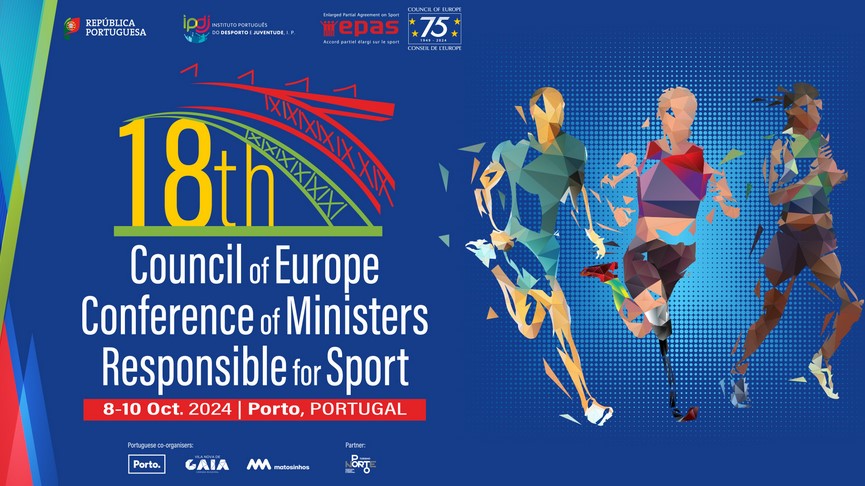On the occasion of the 18th Council of Europe Conference of Ministers Responsible for Sport,(8-10 October 2024,Porto, Portugal) ministers from all over Europe and beyond came together to discuss the future of sport. The need for more collaborative governing and good governance in sport was at the centre of the debates. Organised by the Enlarged Partial Agreement on Sport (EPAS), the Conference brought together representatives from over 40 countries. This year’s edition also included a group of youth delegates as part of a specific youth initiative.
The European Physical Education Association (EUPEA), which unites physical education associations across EU member states, participated in the event and advocated for the transformative role of sport and physical education in society.
Sport is a universal cultural cornerstone, fostering connections between participants and spectators alike. Beyond entertainment, it offers critical educational benefits and positively impacts individual and societal well-being. However, significant disparities persist in access to sport and physical education, especially among children and young people from low socio-economic backgrounds, those with disabilities, and females.
Research highlights an urgent need to address rising sedentary lifestyles among youth by ensuring equal opportunities for all to participate in physical education and sport. According to UNESCO’s first Global Status Report on Quality Physical Education, two-thirds of secondary school pupils and over half of primary school pupils globally receive less than the recommended weekly amount of physical education, with two-thirds of pupils with disabilities excluded entirely. Released ahead of the Paris 2024 Games, the report highlights physical education’s significant benefits, including reducing obesity by 30%, boosting academic performance for 40% of students, and addressing mental health issues like depression and anxiety, particularly among young women. It also improves school attendance and behaviour by up to 20% and 60%, respectively. UNESCO has introduced 10 indicators to help governments assess and enhance physical education quality.
At this conference, EUPEA called therefore on Europe to lead by example and adopt UNESCO’s recommendation of providing at least three hours of physical education per week for all pupils. Compulsory physical education in schools is essential to reducing inequalities and promoting inclusion.
The European Charter and UNESCO both emphasise physical education as a fundamental right and a gateway to broader access to sport. EUPEA advocates collaborative governance between the realms of sport and physical education, fostering dialogue, shared policies, and a cooperative spirit beyond mere competition. By prioritising physical education as part of sports governance, Europe can champion sustainable solutions that promote health, inclusivity, and equal opportunities for all.
Press release from 18thConference of Ministers responsible for Sports
UNESCO’s global report on Quality Physical Education

